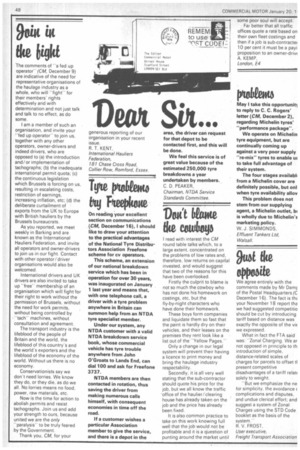Don't Haste
Page 50

If you've noticed an error in this article please click here to report it so we can fix it.
Ike
I read with interest the CM round table talks which, to a large extent, concentrated on the problems of low rates and, therefore, low returns on capital invested, and would suggest that two of the reasons for this have been overlooked.
Firstly the culprit to blame is not so much the cowboy who has not done his homework on costings, etc, but the fly-by-night characters who have done their homework.
These boys form companies and liquidate them so fast that the paint is hardly dry on their vehicles, and their leases on the premises they rent look like a list out of the "Yellow Pages.'' Only a change in our legal system will prevent their having a licence to print money and bring the haulage industry respectability.
Secondly, it is all very well stating that the sub-contractor should quote his price for the job, but we all know the traffic -office of the haulier/clearing house has already taken on the job and the price has already been fixed.
It is also common practice to take on this work knowing full well that the job would not be profitable and it is a question of punting around the market until We agree entirely with the comments made by Mr Dami of the Postal Headquarters (C December 16). The fact is th your November 18 report tha we had suggested competitio should be cut by introducing tariff based on distance was exactly the opposite of the viE we expressed.
What in fact the ETA said was: ''Zonal Charging. We ar not opposed in principle to th introduction of simple, distance-related scales of charges for parcels to offset tl present competitive disadvantages of a tariff relati solely to weight.
"But we emphasize the ne for simplicity, the avoidance complications and disputes, and undue clerical effort; and suggest a system of Zonal Charges using the STD Code booklet as the basis of the system.
R. V. FROST, User executive, Freight Transport Association
















































































































